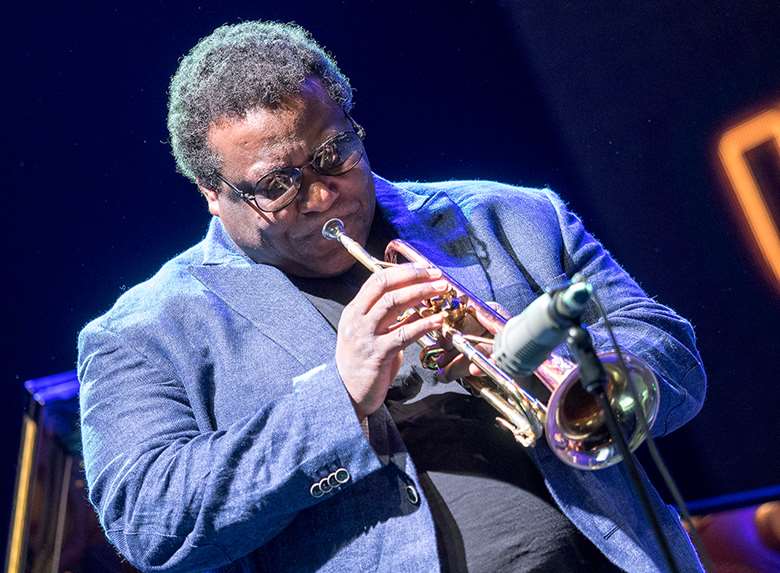Wallace Roney (25 May 1960 – 31 March 2020)
Alyn Shipton
Wednesday, April 1, 2020
The great trumpeter has died aged 59 from complications caused after contracting Covid-19

There was no mistaking Wallace Roney on stage. He cut an impressive figure both physically and musically, and his flurries of notes, rounded tone and occasional moments of lyricism made every performance a compelling listen.
Much has been made of the influence of Miles Davis on his playing, and apart from the touching moment at the 1991 Montreux Jazz Festival where the two trumpeters appeared together in Quincy Jones’s reworking of the Gil Evans scores, Roney involved himself in many other Davis-related projects. He conjured up aural images of Miles not only in Gerry Mulligan’s Re-Birth of the Cool, but in the tribute band where he joined members of the 1960s Davis quintet, and in Tony Williams’ late 1980s bebop band.
But just to focus on the influence of Davis (who mentored Roney during his last years) would be to miss so many other individual aspects of this fine trumpeter’s playing. Roney brought a grittiness to many of the albums he made with his first wife, Geri Allen, complementing the calmer more contemplative side of her writing and playing. They also wrote many pieces together, among which ‘Dark Eyes’ and ‘In The Back Of Your Head’ stand out from the 1997 album Eyes In The Back Of Your Head. During their marriage from 1995-2008 they recorded on each other’s albums and shared several live projects.
Roney also brought his distinctive personality to other bands, successively replacing both Wynton Marsalis and then Terrence Blanchard for two spells in Art Blakey’s Jazz Messengers, in 1981 and 1986 respectively, and recording with each line-up. The 1986 band has the edge on its album Feeling Good, where Roney stars alongside Kenny Garrett and Jean Toussaint, especially on his own composition ‘Obsession’. He toured and recorded with Chick Corea’s Tribute to Bud Powell and perhaps most creatively with Elvin Jones’s mid-1990s band, where Roney’s long inventive solo lines were sparked by Jones’s dazzling polyrhythms.
From his mid-twenties, starting in 1987 with Verses on the Muse label, Roney recorded consistently under his own name, with 21 albums in all, culminating in last year’s Blue Dawn – Blue Nights for High Note. A consistent frontline partner on many of these was his saxophonist brother Antoine Roney, but other regular colleagues also included Adam Holzman and Lenny White. They were both in the band when I last heard him live in New York a few years ago. It was at a jazz critics’ gathering at B.B. King’s club in mid-town, and the assembled writers were massed at the bar, laughing and chatting volubly. When Roney’s band came on, through his mix of musical authority and sheer musicianship, he commanded everyone’s attention and ended with a standing ovation from some of the world’s most hardened critics. That is the remarkable musician I shall remember.